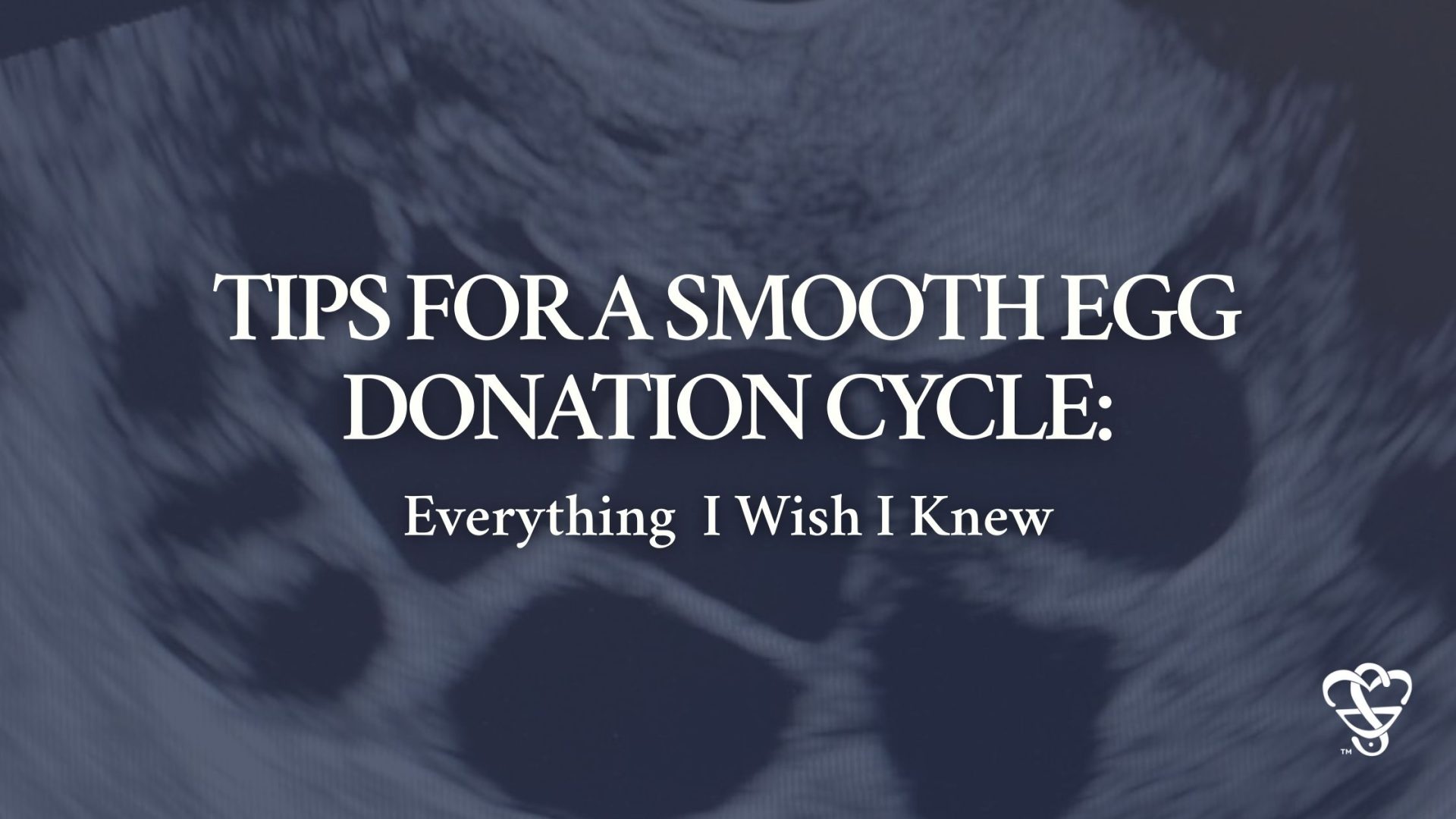Egg donation is a generous and life-changing gift—but like any medical journey, it comes with preparation, planning, and plenty of questions. Whether you’re a first-time donor or considering the path, here are helpful tips, real advice from experienced donors, and facts to guide you through a smooth and successful cycle.
💡 Before You Begin: Understand the Process
Start by learning everything you can about the egg donation cycle. Work with a reputable agency and fertility clinic, and make sure you know what’s expected before, during, and after your cycle.
✅ Tip: Ask all your questions upfront—even the ones that feel small. It’s your body and your journey.
“Make the call and ask the questions. Do your research. Be patient and trust your coordinator.”
✈️ If You’re Traveling: Prepare Ahead
Many donors travel for their retrieval, which makes preparation even more essential.
Before the Journey:
- Know your addresses. Have the hotel, clinic, and any important locations written down or saved in your phone.
- Map your routes. Check distance and travel time to appointments in advance.
- Watch the weather. Rain or snow can impact travel—plan accordingly.
- Have contact info ready. Save your coordinator’s number and clinic contacts in case of emergency.
Don’t Forget:
- Medications & luggage. Always carry medications in your carry-on with a doctor’s note for TSA.
- Be on time. Retrievals are often early in the morning. Set multiple alarms and use hotel wake-up calls if needed.
- Follow your med schedule. Many clinics will give specific times—share this with your coordinator too.
“Know your meds and follow instructions exactly. These appointments take priority over all else.”
💊 During the Cycle: What to Expect
Hormonal medications will stimulate your ovaries to produce multiple eggs. It’s common to feel physical and emotional changes.
What You Might Feel:
- Bloating
- Tenderness
- Fullness or fatigue
“Be prepared to be bloated! You will feel heavy and full while on meds.”
🧠 Tips from Experienced Donors
Real egg donors have shared what they wish they knew before their first cycle. Here’s what they had to say:
Stay Organized:
- “Get to appointments at least 15 minutes early.”
- “Read over everything thoroughly and make sure you are a good communicator.”
Communicate Often:
- “Overly communicate! Keep the IPs in your mind. Don’t be afraid to reach out.”
- “You are not alone. Your coordinator is there for you.”
Advocate for Yourself:
- “Speak up for yourself. Ask who will be in the room on retrieval day.”
- “Really make sure you understand the process.”
Follow Medical Instructions Exactly:
- Abstain from sex. No messing around with that—IPs are emotionally and financially invested.
- Stick to your medication times and report any side effects to your clinic.
“Don’t be afraid. There is nothing to worry about. There will always be someone to guide and support you.”
📊 Is Egg Donation Safe?
Yes—egg donation is considered safe for healthy women. While there are risks, complications are rare when you work with reputable clinics and follow medical guidance.
- Women are born with roughly 1-2 million eggs, but only about 400–500 will ever mature and be ovulated in a lifetime. Egg donation simply matures more than usual during one cycle—it doesn’t “use up” your fertility.
- Egg donors gain valuable insights into their own fertility, genetics, and reproductive health.
“By being a donor, you actually learn about your own genetic health.”
❤️ Donor Reflections
“The experience at fertility clinics has also pushed me to speak more with friends and family about fertility issues and how they often are not talked about but affect many people.”
“The most exciting part is being matched with a family—knowing they are getting exactly what they want, which is amazing. My kids are beautiful and bring me so much joy that I am thrilled to help someone else experience that.”
“Egg donation allowed me to create a family. Children are one of the biggest blessings and I feel as if I made a huge difference knowing I helped someone with this blessing.”
✨ Final Thoughts
Egg donation isn’t just a medical experience—it’s an emotional one. You’re part of helping create a family. That’s powerful.
Take care of yourself. Stay informed. Communicate often. And don’t forget to breathe—you’ve got support every step of the way.












